
SouthPaw
gamer level 3
922 xp
922 xp
followers
6
6
Use my invite URL to register (this will give me kudos)
https://boardgaming.com/register/?invited_by=southpaw
profile badges
...
...
...
...
recent achievements

Novice Grader
Grade 20 more reviews or tips by clicking "Yes" or "No" in response to the question "Was this helpful?"
Grade 20 more reviews or tips by clicking "Yes" or "No" in response to the question "Was this helpful?"

I'm a Real Player!
Claim that you have played a game today by clicking the "Played Today!" button on a game page 25 times.
Claim that you have played a game today by clicking the "Played Today!" button on a game page 25 times.

Gamer - Level 3
Earn Gamer XP to level up!
Earn Gamer XP to level up!

I Got What I Wanted
Add a game to your Owned list that was previously in your Wish list.
Add a game to your Owned list that was previously in your Wish list.
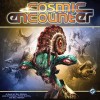

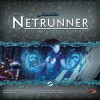


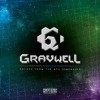
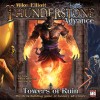


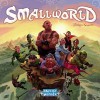
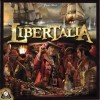
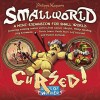
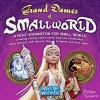
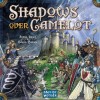






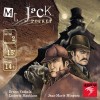

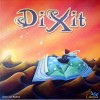






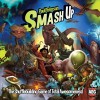






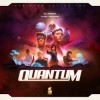
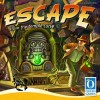
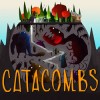


![Go to the Level 7 [Omega Protocol] page Go to the Level 7 [Omega Protocol] page](https://boardgaming.com/wp-content/uploads/2013/06/LEVEL-7-Omega-Protocol--100x100.jpg)
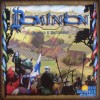
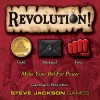
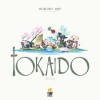



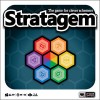

Hanabi
The baleful lowing of a sacred cow
At the time I write this, there are 14 reviews of Hanabi on this site, all of them positive. The cooperative card game won the Spiel des Jahres 2013, everyone loves it, and so it must be good right? Right?
Right. Sort of…
There are plenty of things to like about Hanabi; the low cost, the small form-factor, the novel hold-your-cards-the-wrong-way-around thing and the pleasing notion that you as players will be creating a fireworks display. Who doesn’t like a fireworks display? Other than pet dogs, no one, that’s who.
And yet I have had mixed experiences with Hanabi that suggest that at certain tables and with certain people it is going to stink the place up. Here’s my personal list of reasons why.
This card is green. No, wait, it’s orange. Green… Oran-Green!
On the version I have, the artwork on the cards is plain enough; a number and a firework burst. It’s the colours that are the problem. I am colourblind and the green and orange cards are indistinguishable. This won’t affect every player, but even my friends whose brains are wired correctly struggle with this to an extent in poor lighting conditions. This makes the game much harder than it needs to be, and can lead to having to ask other players to help you out identifying which cares are which when giving out clues. I understand that this has been corrected on some editions with the addition of symbology. Well caveat emptor because confusion in Hanabi is bad because…
There’s definitely a reason, but which of these cards did you tell me it was on?
It’s a deduction game. Players need to determine the hidden meaning of the clues they are given about the cards in their hand. Then they need to remember them. In practice this equates to one part deduction to two parts memory test. This proportion diverges the more you play with the same people as you will develop codes and standard inferences to the clues you are given. This negates the deduction element and makes the game largely what you can remember being told about your hand. If your (or someone at the table) memory sucks, so will Hanabi.
The Curse of the Cooperative
And I’m not talking about a haunted supermarket. Coop games famously suffer from alpha gamer syndrome where the guy at the table who has ‘worked the game out’ knows what everyone should do and tells them so. Loudly. Hanabi doesn’t suffer from that problem as much as it does from inadvertent (or advertent, which I’m sure isn’t a word) cheating. When you are about to discard a card, certain players will be unable from doing something to indicate that you are about to make a mistake. Humming, screwing up eyes, shaking heads, tapping nails on the table; all of these are skills perfected by my wife. She just can’t help herself. If your group contains someone like this, Hanabi is doomed.
It’s my turn! I guess I have to discard
There can be a real problem of player agency in Hanabi. That is to say that a game, any game, is often defined by the choices presented to its players. Quite often Hanabi presents its players with no choice and only prescribed actions. The fun in the game comes from determining who needs to be given what information about their hand at what time. In order to do so, players spend a token. If all the tokens are spent then you must either play a card or discard from your hand. In games with few players it is common for one player to give out all the clues, and another player(s) to be relegated to playing cards and passing the turn back to the clue-giver. In larger games it is quite possible that a player will know nothing about their hand, have either no tokens left or just a single one and be forced to discard completely blind and risk ‘losing’ the game. Oh, and on ‘losing’ the game…
Damp Squibb
Victories in cooperative games should be sweet. Wins are hard-fought, odds overcome, teamwork triumphant and the payoff, whether thematic or otherwise, should be worth the effort. Did you successfully carry the One Ring to Mt. Doom? Did you thwart the forces of darkness besieging Camelot? Did you defeat the ghosts plaguing your village?
In Hanabi the game stops. You count up the points achieved and think “16 points… I guess we could get 17 next time.” It’s flat, lifeless, pointless, which is ironic given that points is all you will have to show for your effort. Even when you ‘win’ it is just a matter of having the most points possible.
So there you have it. You will see that I have rated Hanabi as better than bad. It isn’t bad. It’s just in my opinion (and yours might vary!) it isn’t great either.